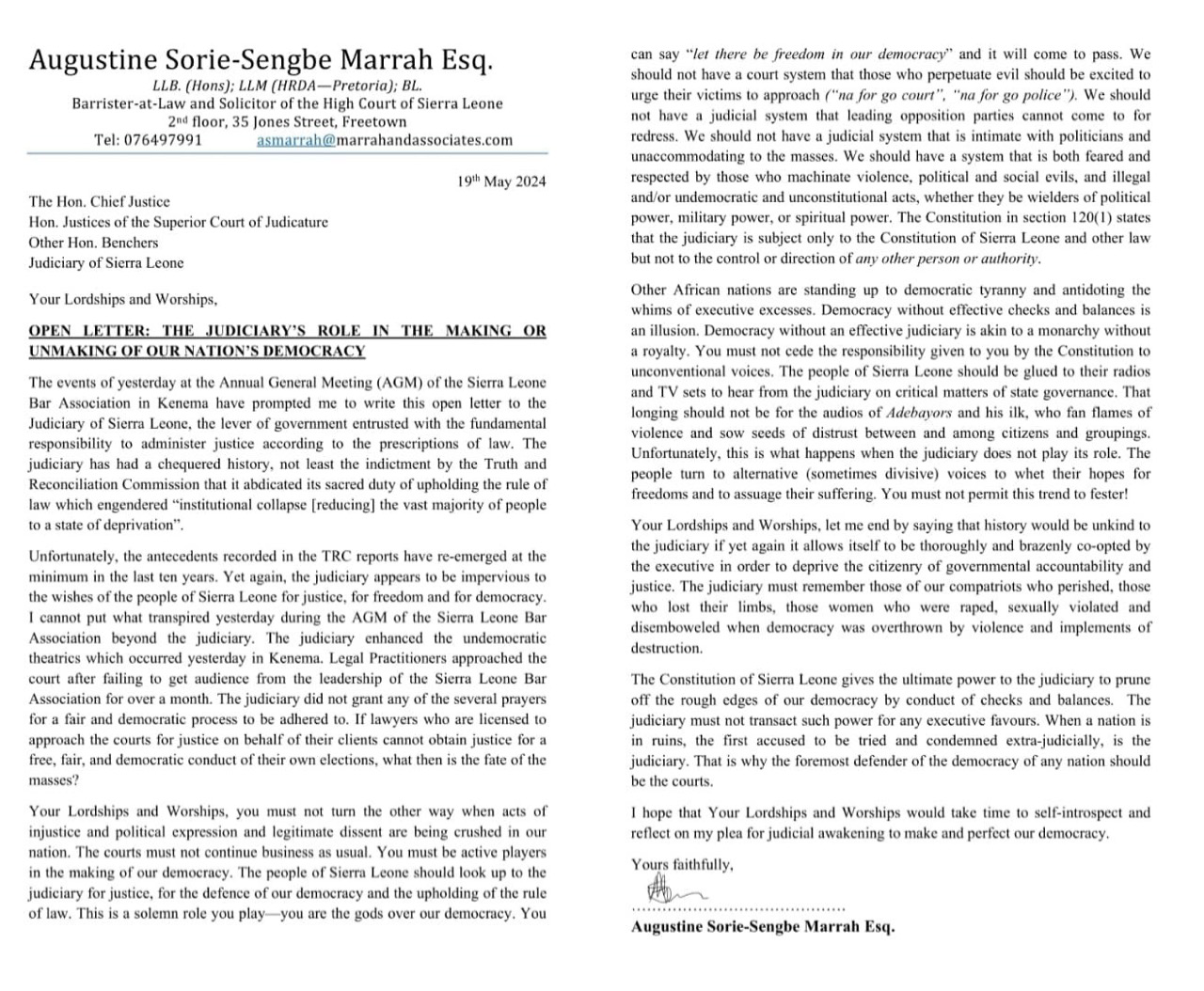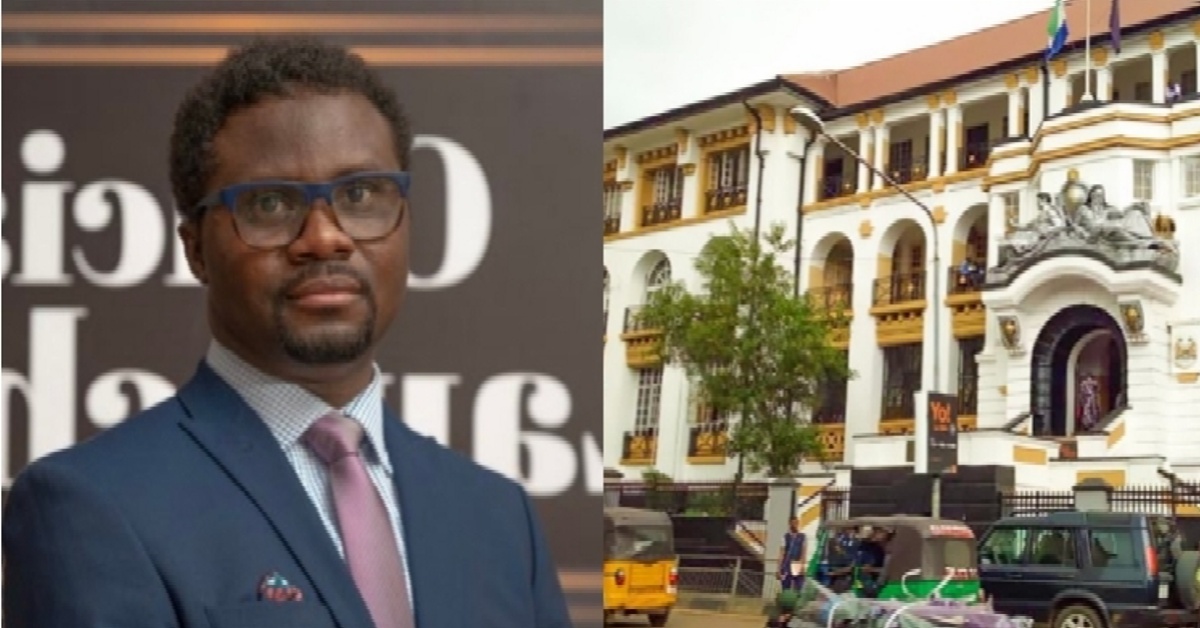In a potent and provocative open letter dated May 19, 2024, prominent legal advocate Augustine Sorie-Sengbe Marrah has thrown down the gauntlet to the judiciary of Sierra Leone. His missive, titled “The Judiciary’s Role in the Making or Unmaking of Our Nation’s Democracy,” addresses the Chief Justice, Justices of the Superior Court of Judicature, and other judicial authorities, urging a critical self-examination of their role in upholding democracy.
The catalyst for Marrah’s letter was the contentious events at the Annual General Meeting (AGM) of the Sierra Leone Bar Association in Kenema. According to Marrah, the judiciary failed to facilitate a fair process for the legal practitioners who sought an audience with the leadership of the Bar Association. This denial, Marrah argues, highlights a broader, systemic failure within the judiciary to uphold justice and democratic principles, echoing historical criticisms noted in the Truth and Reconciliation Commission (TRC) reports.
Marrah begins by recalling the judiciary’s troubled past, citing the TRC’s findings which accused it of abdicating its duty, leading to “institutional collapse” and widespread deprivation. He fears history is repeating itself, as recent events suggest the judiciary remains indifferent to the public’s call for justice, freedom, and democracy.
His letter paints a vivid picture of the judiciary as a critical lever of government, tasked with administering justice according to the law. However, Marrah suggests that recent actions or inactions by the judiciary have undermined this responsibility, enhancing what he describes as “undemocratic theatrics” at the AGM.
Legal practitioners, he notes, have been left without recourse after failing to gain an audience with the Bar Association for over a month. The judiciary’s refusal to grant any of their several requests for a fair process casts a dark shadow on its commitment to democracy. Marrah poses a poignant question: if licensed lawyers cannot secure justice for a democratic process within their own elections, what hope is there for the general populace?
Marrah’s letter goes beyond criticism; it is a clarion call for judicial reform and active engagement in democratic governance. He implores the judiciary to not turn a blind eye to acts of injustice and suppression of dissent. He stresses that the judiciary must not continue “business as usual” but instead should be an active participant in safeguarding democracy. The people of Sierra Leone, he asserts, rely on the judiciary to protect their rights and uphold the rule of law.
A central theme in Marrah’s letter is the need for a judiciary that is both respected and feared by those who commit political and social injustices. He argues against a judicial system that is “intimate with politicians” and unapproachable by the masses. Instead, he advocates for a judiciary that is a beacon of hope for redress, where leading opposition parties can seek justice without fear or favor.
The letter also reflects on the broader African context, noting that many nations are resisting democratic tyranny and executive overreach. Marrah warns that without an effective judiciary, democracy in Sierra Leone is illusory, akin to a monarchy without a crown.
Marrah’s message is clear: the judiciary must remember its duty to those who have suffered and died for democracy. He reminds the justices of the gruesome realities of past political violence and the moral imperative to honor those who lost their lives or were victimized when democracy was overthrown.
Citing the Constitution of Sierra Leone, Marrah underscores that the judiciary’s power to maintain checks and balances is paramount. He warns against any judicial transaction that serves executive interests over constitutional mandates. When democracy is threatened, the judiciary must stand as the first line of defense, not its executioner.
Marrah concludes with a heartfelt plea for the judiciary to reflect on his call for judicial awakening.












